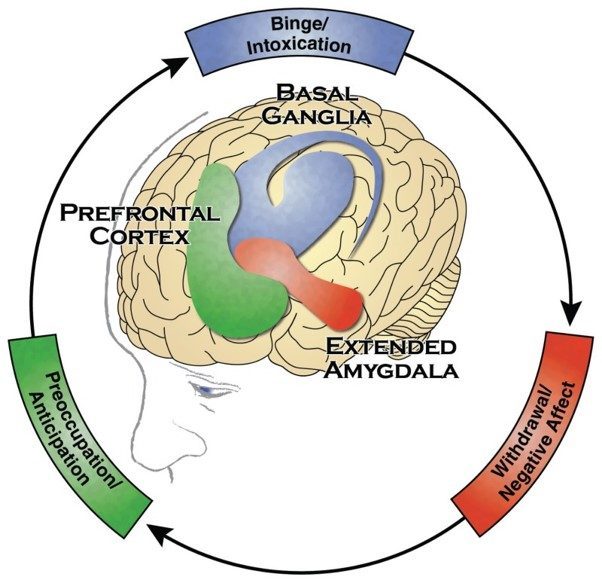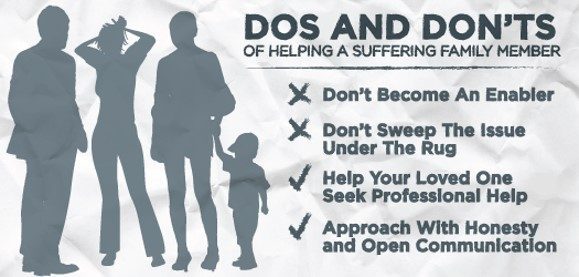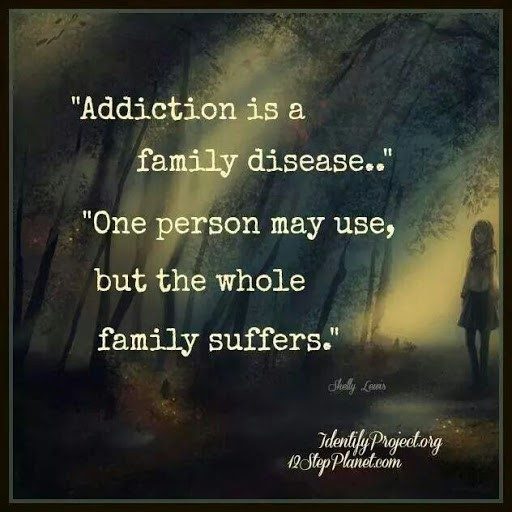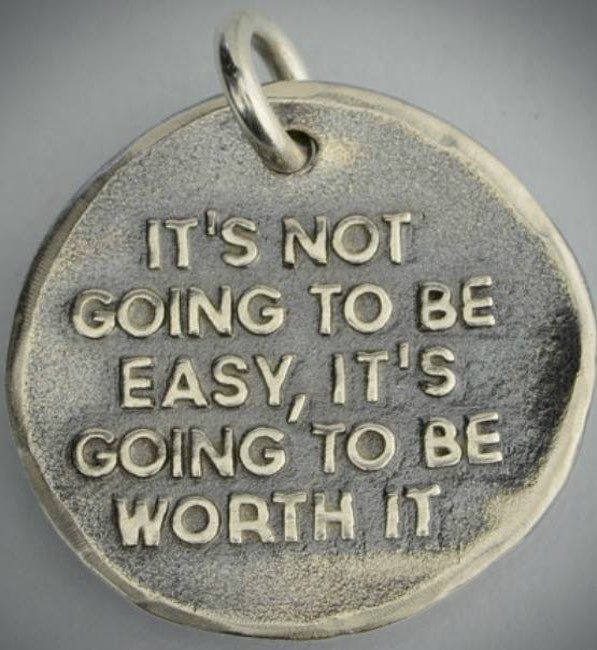How to help a family member with addiction
If you are concerned about helping a family member who may be suffering from addiction, it can feel like a very lonely place. As you take their worries on your shoulders time and time again in a bid to help, it is not only stressful but utterly exhausting.
Addiction leads to very self-destructive behaviours that not only impact the sufferer but also affect all those that care for them. We at Rehab Guide really do appreciate that addiction is a ‘family illness’.
Living with an alcoholic or addict, it is very difficult (if not impossible) not to get drawn into their world on some level. Whether they are causing you fear, anxiety or financial strain, the pressure is 24/7 and rarely lets up.
Many family members become so used to their loved ones’ addictive behaviours that it can be really hard to take a step back and fully appreciate the gravity of the situation. Addiction is a life-threatening disease of the brain, without professional help and intervention, many that suffer do go on to die. It is then left to the family to pick up the pieces of what is left of their own lives.
Rehab Guide based in Aberdeen, Glasgow and London is here to assist you in finding the help you need for your loved one. We work with the best private rehab clinics all over the UK. We feel it is important for family members to, a) understand what addiction actually is, b) be able to identify addiction in a family member, and c) know what steps to take to help them. With addiction, you can never take action too soon, only too late.
Understanding addiction

Addiction can be very difficult for anyone to understand that is not fully educated about the facts. Even the sufferer is unlikely to understand why they do what they do; it truly is a baffling illness.
When it comes to mental health illness, no two persons are the same, yet some defining traits tend to manifest in most that suffer from addiction.
The medical world understands addiction as a chronic disease of the brain that can only be treated, never cured. Someone who suffers from addiction will only get progressively worse over time unless they undergo the right bespoke treatment.
Addiction is defined as a chronic relapsing disorder that is characterised by three main components:
Preoccupation and anticipation
A person who suffers from addiction will have little if any, control over their drinking and drugging. In the case of process addictions, they have little control over the activity that they are addicted to.
Lack of control is a defining characteristic of this illness. When an addict or alcoholic starts to drink or drug, there is no telling when they will stop or how much they will consume.
Addiction directly affects a person’s ability to moderate their own intoxication levels. They will regularly binge on alcohol, drugs, gambling or sex (etc.) to the point where it becomes harmful not only to them but also to others around them.
You may have observed your family member going on sprees that they later regret? They may well swear they will stop? – but due to the preoccupation and anticipation, they keep repeating the same behaviour again and again and again!
Withdrawal and negative effects
In someone that suffers from addiction, there is always a withdrawal, whether that withdrawal is psychological, physical, or both. Drug addiction and alcoholism often result in physical dependence. Withdrawal symptoms can be extremely unpleasant and even dangerous. The fear of withdrawal and withdrawal symptoms can keep an individual in the perpetual cycle of self-destruction.
Does your family member suffer from severe or erratic mood swings, or often appear physically unwell when not intoxicated?
In addition to developing a physical or psychological dependence on a substance or activity, your family member is also likely to suffer negative consequences as a direct result of their addiction. Despite their suffering, they continue to drink/drug/act out. Once again, their confusing actions result from the other components that form an addiction.
Someone with an addiction will have first commenced using, then abused, then become addicted. Repeated exposure to the chemicals the drug, drink or activity induces in the brain change how the brain’s reward centre operates and also affects how the brain’s pathways communicate. Ultimately this results in a brain that is dominated by obsessive thoughts that compel the sufferer to seek relief regardless of the risks involved (1)
Spotting the signs and symptoms of addiction
There are many signs and symptoms that are commonplace in all forms of addiction. Spotting these signs and symptoms can help to clarify in your mind if your family member is a sufferer. This will hopefully give you the confidence to speak to them about it.
- They are frequently intoxicated or frequently engaging in a particular activity, i.e. sex, shopping or gambling
- They have suffered negative consequences as a direct result of drinking/drugging, i.e. losing their driving licence, a partner or a job.
- Their physical and/or mental health is suffering as a result of their drinking/drugging or engagement in a particular activity.
- They regularly lose control of the number of drugs or alcohol they consume and go on binges.
- They have lied, manipulated or stolen in order to fund their habit.
- They are dishonest about the amount they are drinking/drugging and try to hide the true extent of their problem.
- They have suffered withdrawal symptoms when they have not been able to get alcohol or drugs.
- They try to plan their day so that their addiction is always involved.
- Without their substance or activity, they are restless, anxious and agitated.
- They have made attempts to stop or moderate that have failed.
- Emotionally they are erratic and often emotionally unavailable.
- They have lost interest in things they used to enjoy and socially isolate from long term family and friends
There are many more characteristics of addiction, and these examples should help you conclude if your family member has the illness or not. If you are still in any doubt, call Rehab Guide and speak to one of our friendly experts for free and confidential advice.
Talking about addiction to family

Hopefully, now that you have a better understanding of what addiction actually is, you will come to the realisation that suffering from the condition is not the person’s fault. However, this should not be used as an excuse for them to do whatever they like!
If your family member identifies as an addict or alcoholic – they and they alone are responsible for seeking and engaging in the correct treatment. You can only help by supporting and encouraging them in doing so.
Challenging a family member to get help for their problem may feel awkward, frightening or difficult. Nevertheless, addiction is a serious illness that should never be ignored or underestimated.
We suggest speaking with your family member when they are not too intoxicated or high. Usually, after a binge when they are full of shame and remorse is a good time to broach the subject. Your loved one is much more likely to be receptive and reasonable when they are not heavily influenced by chemicals.
Tell your family member what you understand of addiction, referring to this page if it helps. Explain to them how very unwell they are and emphasise their life is at risk if they do not seek help. Express your concerns and speak calmly of how their actions affect you as someone who loves them.
We appreciate that remaining calm while discussing the very thing that has caused you untold stress and worry is very hard. Yet for them to understand the nature of their illnesses and how critical treatment is, remaining calm and collected is most helpful. If you feel unable to do this, perhaps ask someone your family member trusts yet is not so affected by their actions to speak to them instead.
If your family member admits they have a problem, then this is half the battle won!. Addiction can be strongly characterised by secrecy, shame and denial. The less judged your family member feels, the more likely they are to speak openly with you.
If your family member is not receptive to help, we suggest re-enforcing to them that they can approach you to talk about the subject when they are ready.
Overcoming excuses and obstacles
Most alcoholics and addicts, when presented with the reality of professional treatment, will place obstacles in the way, or make excuses. Unless they are truly desperate, they will still try to cling to the little they have left, whether that be a job, a partner or their own children.
Try to understand that someone who suffers from addiction will struggle to see the bigger picture. This is because addiction shrinks the individual’s world to one focal point – feeding their habit.
It is likely behind the excuses lies a tremendous fear of the unknown. Your family member will struggle to envision a life without their addiction in it, just as a healthy person would struggle to envision life without food and water!
Try to paint the bigger picture for your family member, i.e. they will be a better parent, son, daughter, friend, partner and employee. Also, remind them that addiction is progressive, and without treatment, they are likely to lose the very things they are trying so desperately to hold on to. Ultimately, addiction can cost them their life.
Getting support for yourself
Addiction affects everyone and everything that is touched by it. If your family member is not willing to accept help, this is where you will need to take a step back. Not only for your sake but for theirs also.
In order for the affected family member to actually want to stop using and change their ways, their current life needs to become intolerable. While they still have a safety net, whether that be money to finance their habit or emotional support to pick up the pieces after a spree, they are unlikely to truly want to change.
Stepping back from your family member and allowing them to feel the consequences of their addiction is hard! This is why we advise you to access support for yourself. Al-anon, one to one counselling and family rehab programmes are all highly recommended.

Sources of support for the family will also teach you how not to enable your family member’s addiction and show you how to start rebuilding your OWN life, regardless of the choices your family member makes.
When to consider a family intervention
If your family member is very unwell, in a downward spiral and basically dying from addiction, you have nothing to lose by considering a family intervention. A family intervention can be a gold card to treatment where all other methods have failed.
The one thing to remember above all else is that you cannot force an addict to stop, but there are ways of trying to get them to want to stop.
Rehab Guide receives many calls from concerned family members asking if their loved one can be ‘locked up’ in a rehab clinic. Let us be clear here; rehab centres are not locked down facilities; they operate the same open-door policy as any medical facility. Patients have to WANT to stay and engage in treatment. There is no way of forcing your loved one to be locked up in ANY medical facility, not unless they are sectioned under the mental health act.
We understand that family members feel desperate as they watch their loved one being destroyed by addiction, and in cases such as this, we would recommend a professional intervention. There are two types of intervention to consider. The first is conducted by a professional addiction interventionist; the family conducts the second.
Drug and alcohol interventions are considered highly effective. They are designed to break down the denial and assist the suffering addict in confronting their illness and accepting help. Even when a family member refuses to accept the truth, they are being confronted with, more often than not, the seed is well and truly sown. It is usually only a short matter of time before they come to their senses.
Call Rehab Guide for more information on our family programmes and for guidance on interventions; we will do our utmost to support you wherever we can.
Addiction treatment for a family member
If your family member admits that they have a problem and wants help for their addiction, this is where long term outcomes need to be considered very carefully. There is no quick fix for addiction. Just as an individual does not become addicted overnight, the same is true for recovery. Recovery takes hard work, commitment and ongoing maintenance.
When treating any addiction, the first step to long term recovery is detox. The individual needs to stop using the substance(s) or engaging in the activity that they have become addicted to. Drug and alcohol detoxes should only be conducted by professionals within a safe medical environment. Going cold turkey is dangerous and rarely works
If your family member has a drug or alcohol dependence, then a CQC registered detox centre is the safest course of action. Our detox clinics are staffed by qualified medical professionals who will ensure that your family member is cared for and supported throughout the entire detox process.
If private detox is not something you can afford, then your family member will need to approach their local drug and alcohol team for help and support in the community.
Once your family member has safely stopped using/drinking, the next step is rehabilitation. Unless your family member undergoes addiction rehabilitation, they are highly susceptible to relapse. This is due to the fact that drugs/alcohol/behaviours are just a symptom of this highly destructive brain disorder.
Addiction is a chronic illness that resides in the mind. Taking the drugs and alcohol away will only serve to give the body temporary respite. The actual illness still remains, and this is what requires intensive, evidence-based treatment in order to overcome.

Drug and alcohol rehab programmes consist of numerous proven treatments that are designed to address the root issues, retrain the brain into thinking differently and show the individual how to live a clean and sober life free from addictive behaviours.
As a leading authority on addiction treatment, Rehab Guide will ensure that your family member accesses the best addiction treatment available for them. We treat our patients on a mental, physical, emotional, social and spiritual level, ensuring they undergo full rehabilitation. We also provide our patients with the tools to continue their recovery back in the community.
If you’re concerned for yourself or a loved one, please contact us at our centres Aberdeen 01224 402080, Glasgow 0141 309 9138, or London 02072052845 for more information on how to help someone coping with addiction. You can be the one to help them find treatment and rehabilitation for alcohol and drug addiction.
See Also
Sources and references
- Koob GF, Volkow ND – Neuropsychopharmacology. 2010 Jan; 35(1):217-38. Can be accessed at https://www.ncbi.nlm.nih.gov/pmc/articles/PMC4365688/
Jason has been writing expert articles and blog posts on issues related to addiction and mental health for Rehab Guide.
Jason has a BA in Psychology, a Masters of Social Work and is currently working on his doctorate in social work.


